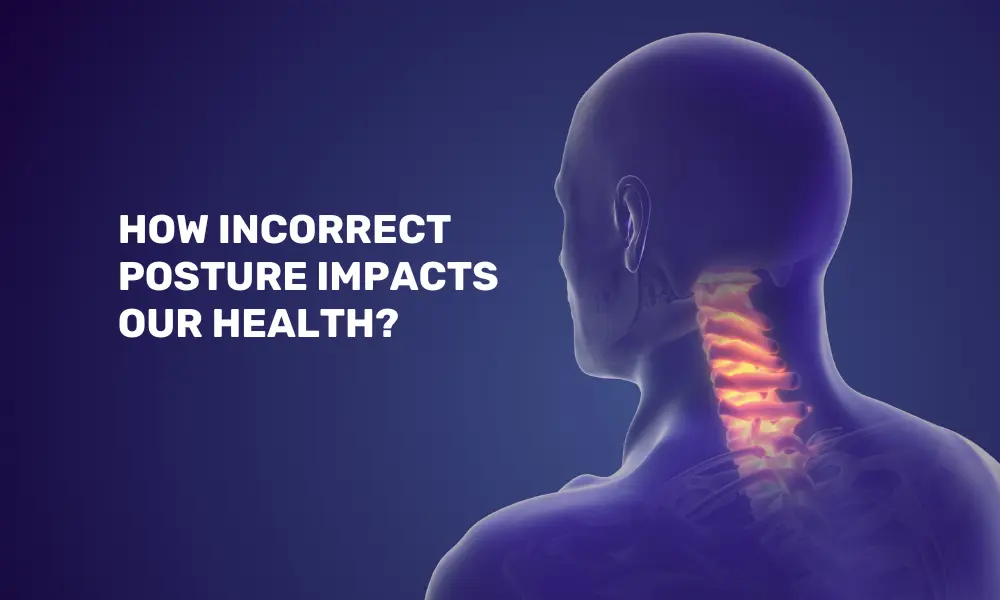Poor posture, especially asymmetrical standing positions, and prolonged sitting can contribute to sciatica, scoliosis, and other complicated health conditions. If one is prone to slouching, this article is for you.
Here are a few effects that poor posture can lead to:
Neck Pain & Headaches
Poor posture puts pressure on our posterior muscles, which hurts our neck. Whether our shoulders are hunched forward or our head is aimed downward, the strain put on our neck by the tightness of these muscles can lead to headaches, which can be very discomforting.
Spine Curvature
A perfectly aligned spine has three main curves that help to form an ‘S’ shape. Over time, due to poor posture, these natural curves change shape, putting excessive pressure on the wrong position. Our spines are built in a way that they can absorb shock, but bad posture can slowly deteriorate this natural ability, putting our body at risk for more serious injury in the future.
Back Pain
One of the most common side effects of poor posture is unwanted strain on our upper and lower back. Slouching forward puts pressure between our shoulder blades and causes us to flatten our back muscles. If an individual has pain below the neck and around the tailbone after a long day at work, then one is not sitting up straight.
Sciatica
Sciatica is a condition where our sciatic nerve is compressed or irritated, causing sharp pain, tingling, or numbness down the leg. It can limit mobility and lead to chronic pain.
Scoliosis
Scoliosis, on the other hand, is a sideways curvature of the spine that can cause back pain, reduced lung capacity, and posture issues. Severe cases may also require surgery.
Poor Sleep
Incorrect posture can put our entire system of muscles in a compromising position. If an individual is unable to fully relax their body at night and spends the night tossing and turning to find a comfortable position for their neck and back, this can lead to hours of lost sleep.
Disrupted Digestion
If one has an office job that requires one to stay at a desk most of the day, sitting with a bad posture can lead to digestive issues. Neglecting to pay attention to our posture can compress our organs, which can slow the digestive process and cause stomach issues.
Ways to Prevent Discomfort Due to Incorrect Posture
The following tips can help to have a proper posture that does not result in additional or long-term chronic pain:
-
Distribute weight evenly on both feet.
-
Maintain a neutral pelvic position.
-
Keep your spine aligned, shoulders back, and chin level.
-
Avoid locking your knees and practice good posture habits regularly.
-
Take frequent breaks in between long sitting
-
Do specific yoga asanas like cat and cow pose, cobra pose, half-moon pose, bridge pose, and knee-to-chest pose. These asanas can help relieve the pain.
How Can Physio Therapists Help Improve Posture?
Patients with neck and lower back pain or headaches can work with a physiotherapist to correct the issues causing this discomfort. A physiotherapist shows how to decrease pain and help strengthen weak muscles. Once the muscles are stronger, one can work on improving the range of motion. To consult a physiotherapist – CLICK HERE.





